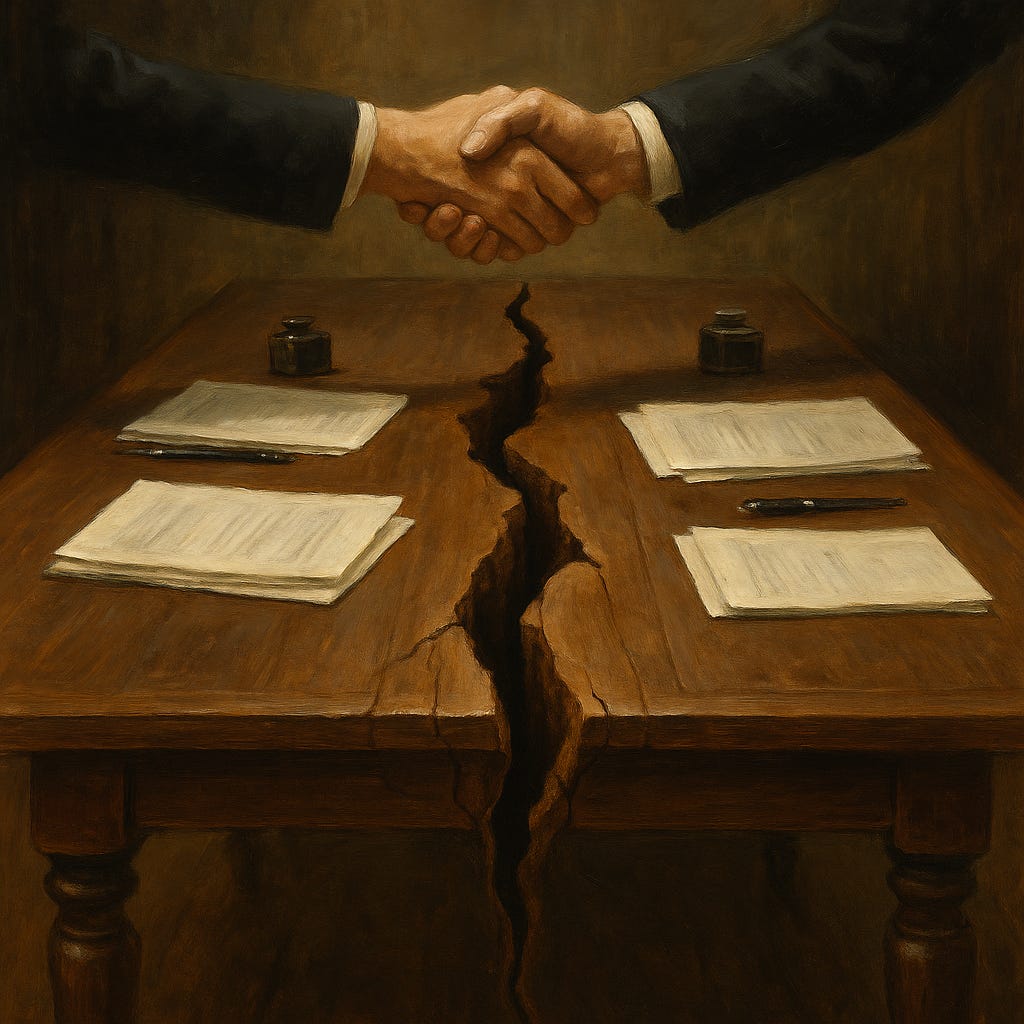Fragile Compromises, Fragile Republics
From slavery in the 1850s to identity politics today, uneasy bargains can only last so long.
It’s a frightening thing to wonder where we’ll be four years from now. The full weight of this era hasn’t yet landed, but the ground is already shifting under our feet.
Anger is everywhere.
Anger over a perceived loss of cultural supremacy.
Anger at the changing face of the nation.
Anger at neighbors whose votes feel like betrayals.
It is only August of Trump’s second term, yet the air feels thick with grievance, more than enough to disorient a people who once told themselves they were steady.
One of the clearest signs of the times is the militarization of the Immigration and Customs Enforcement agency. What was once a bureaucracy of paperwork and raids now patrols like a standing army. The nation’s founders feared such forces for good reason: they had lived under monarchy and militarism, where armed men on the street meant rights suspended and homes no longer private. That fear wasn’t just elite philosophy; it was lived experience. And if that is the world being rebuilt in America, then yes, we ought to be afraid.
But fear doesn’t stop there. Our democracy itself drifts toward a hollow core.
Americans treat politics like a seasonal sport: engaged for presidential contests, disengaged in the long stretches between. In a system where local governments administer elections, this disengagement leaves the machinery of voting vulnerable. That is how people are easily demagogued into believing that an election was stolen because the candidate who spent the last several years saying taboo and mean-spirited things about other American subcultures suddenly deems them to be. Imagine masked guards at polling places, state officials shouting fraud without proof.
This is an image that feels less like democracy than a form of intimidation theater.






